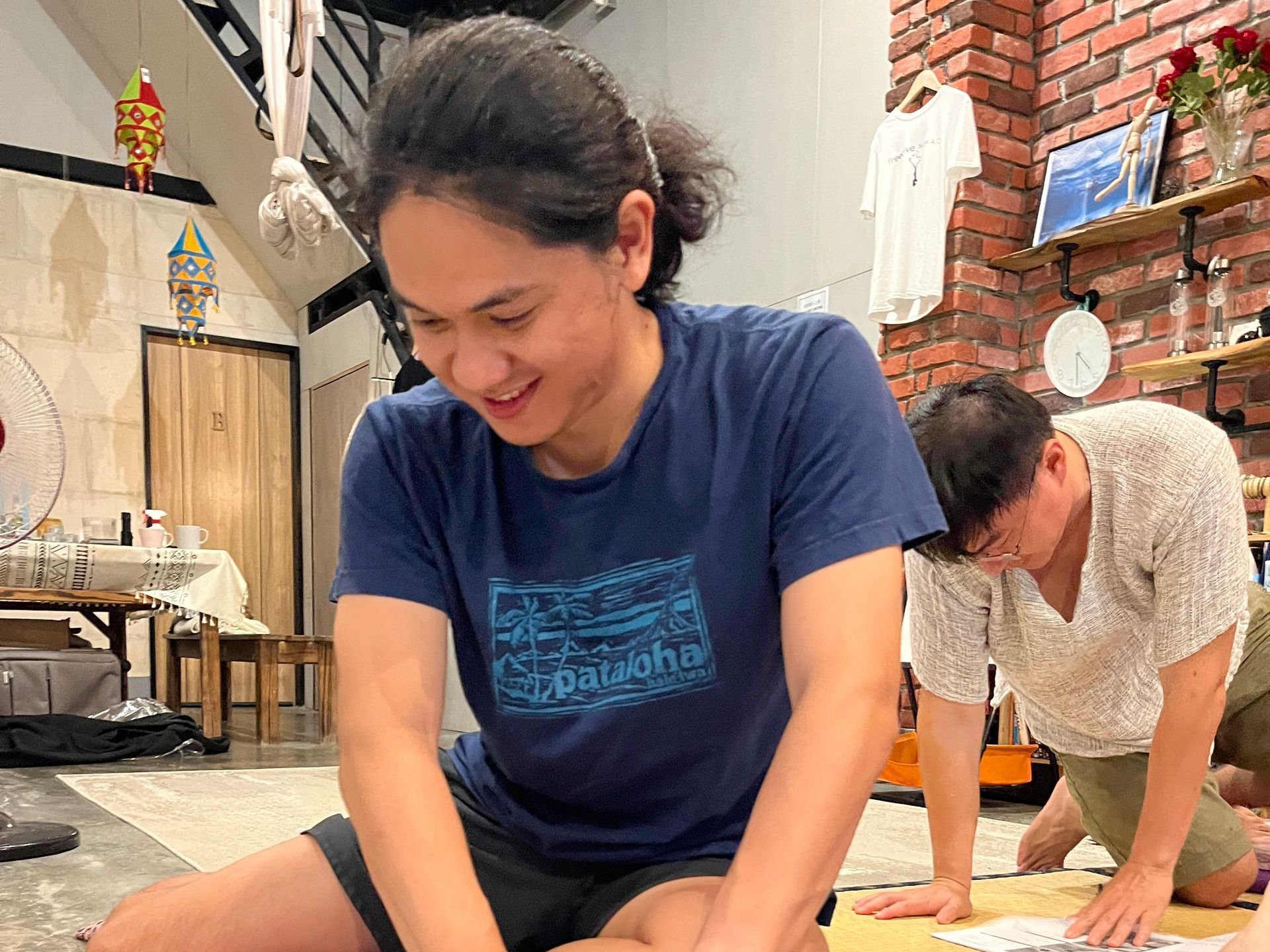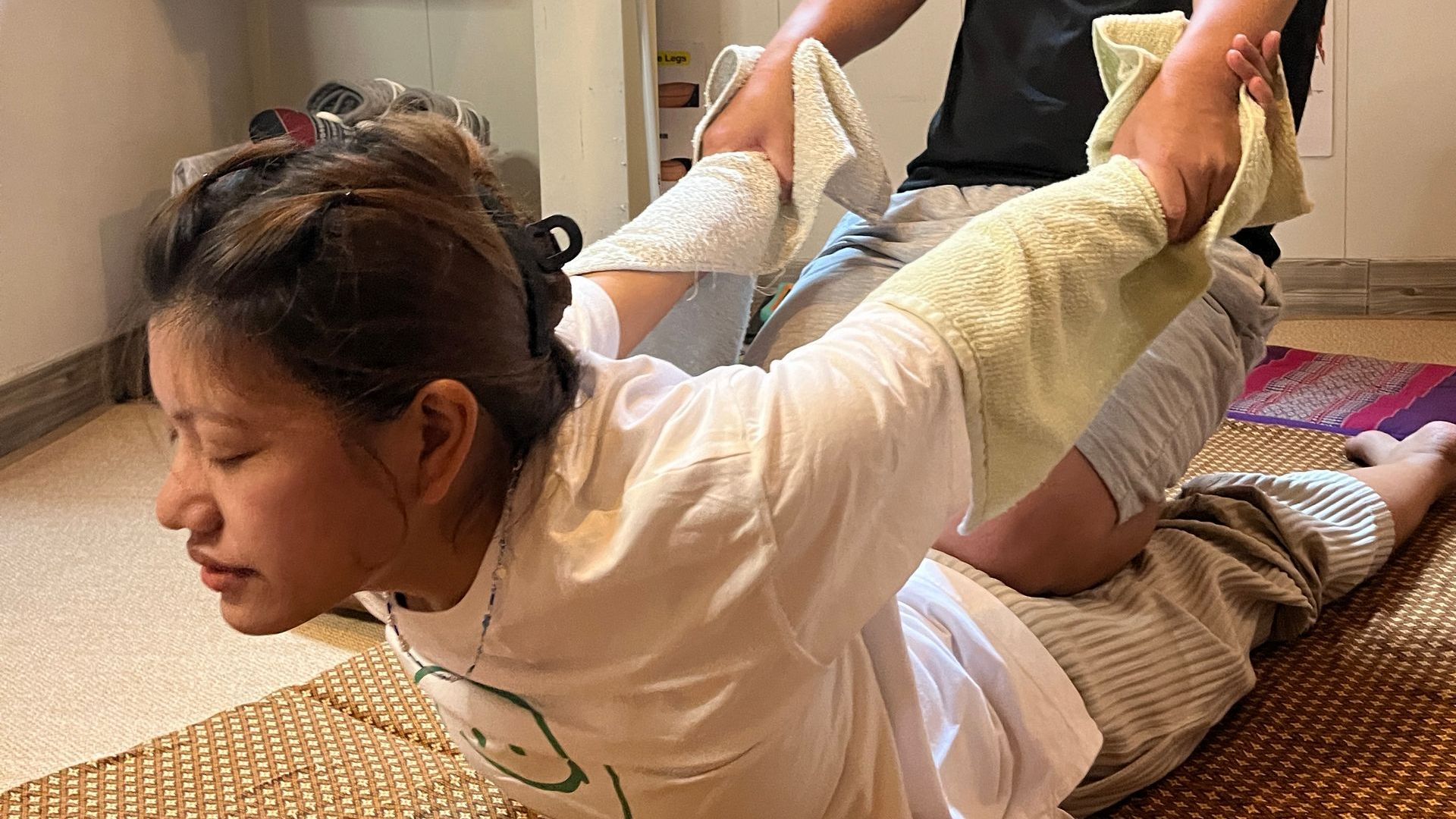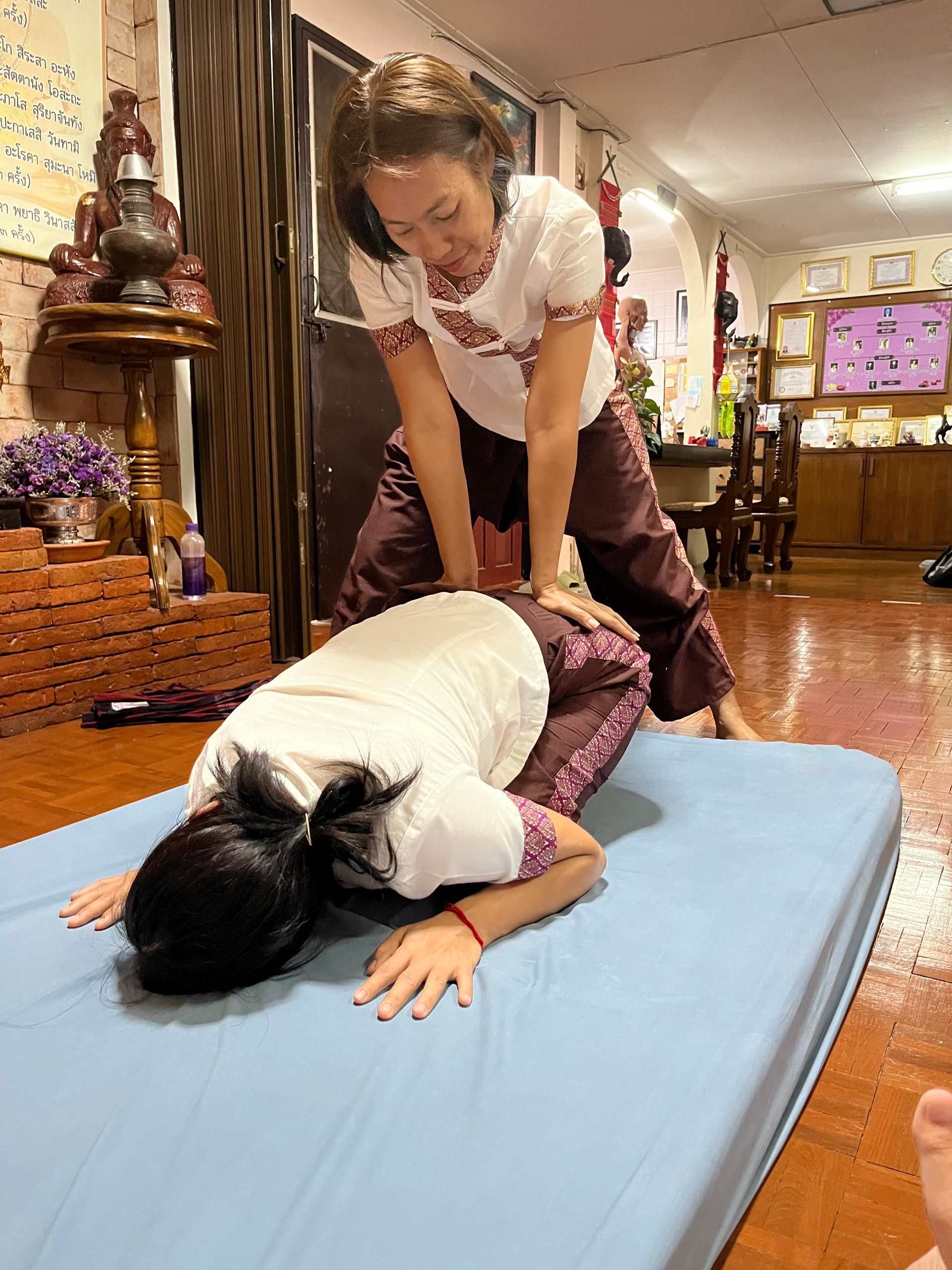So You Want to Be a Thai Massage Therapist? Here’s What You Need to Know
In the past year, more and more of my students have come to me saying, “I’m thinking about leaving my 9–5 job and becoming a full-time massage therapist.”
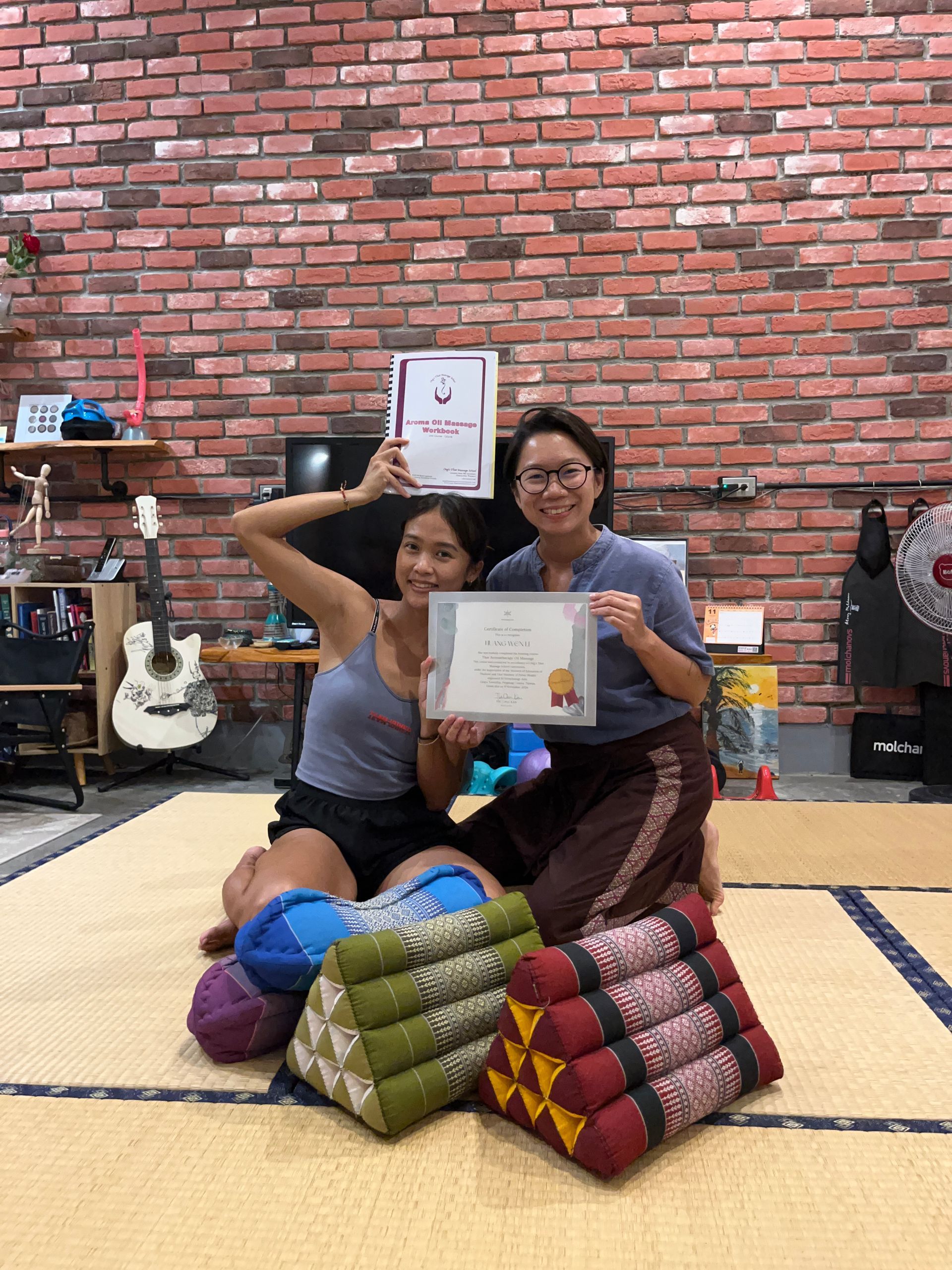
It’s a beautiful thought. And a powerful decision.
But I also feel a strong urge to share the reality of this path—because while it can be deeply rewarding, it’s not always soft and glowing. It’s not always an Instagram dream.
So I wrote this for anyone feeling that call—to help you walk into this journey with both
courage and clarity.
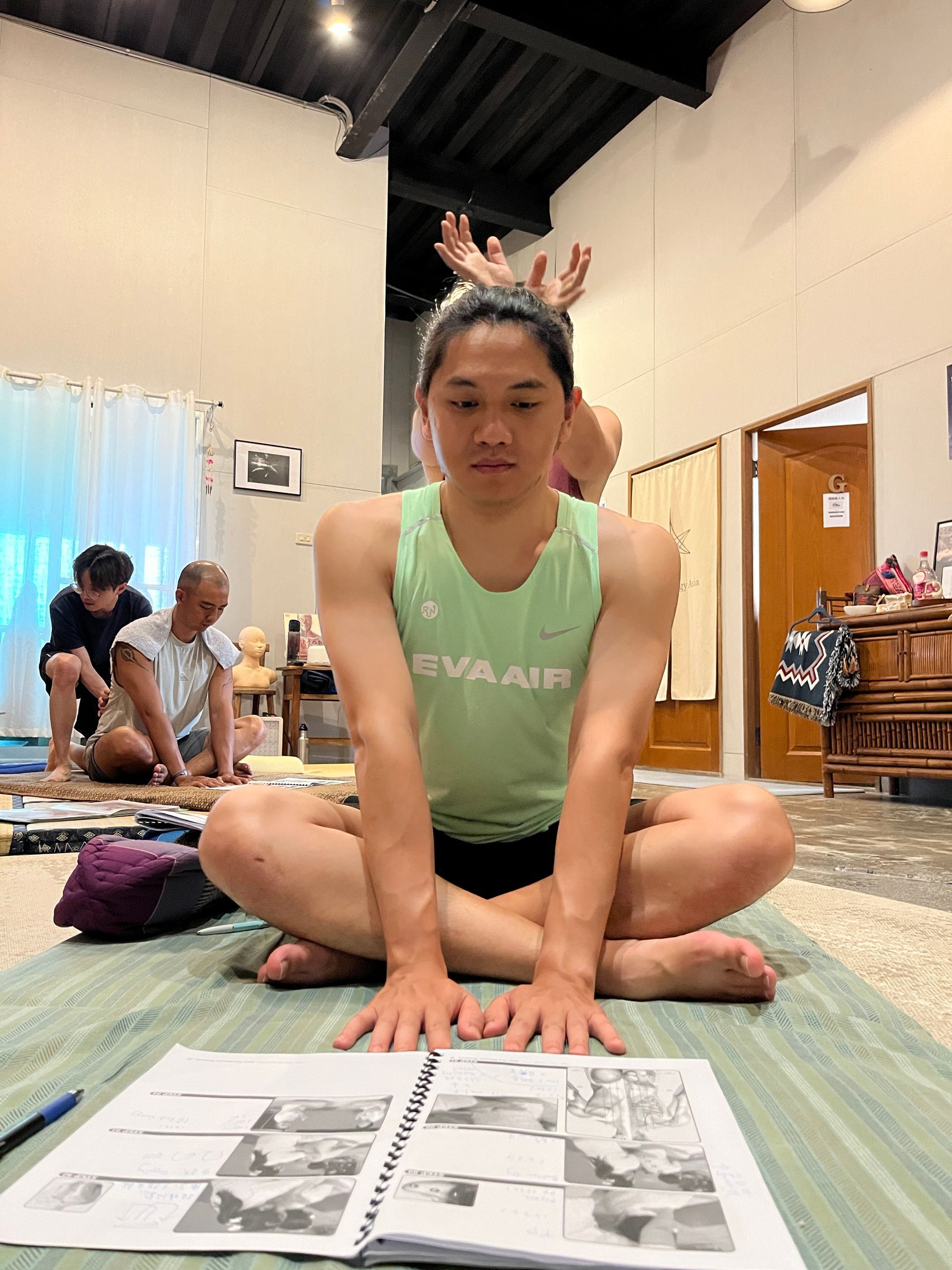
The Inner Calling: Why So Many Feel Drawn to Massage Work
There’s a reason people are drawn to this path.
Touch is medicine. Human connection is healing.
Many people come into this world of bodywork because they crave something more real than the daily grind. They want to slow down, help others, live with intention. They want their work to feel like it matters.
If you’ve ever had that deep inner nudge like:
“This… this is what I’m meant to do.”
You’re not alone.
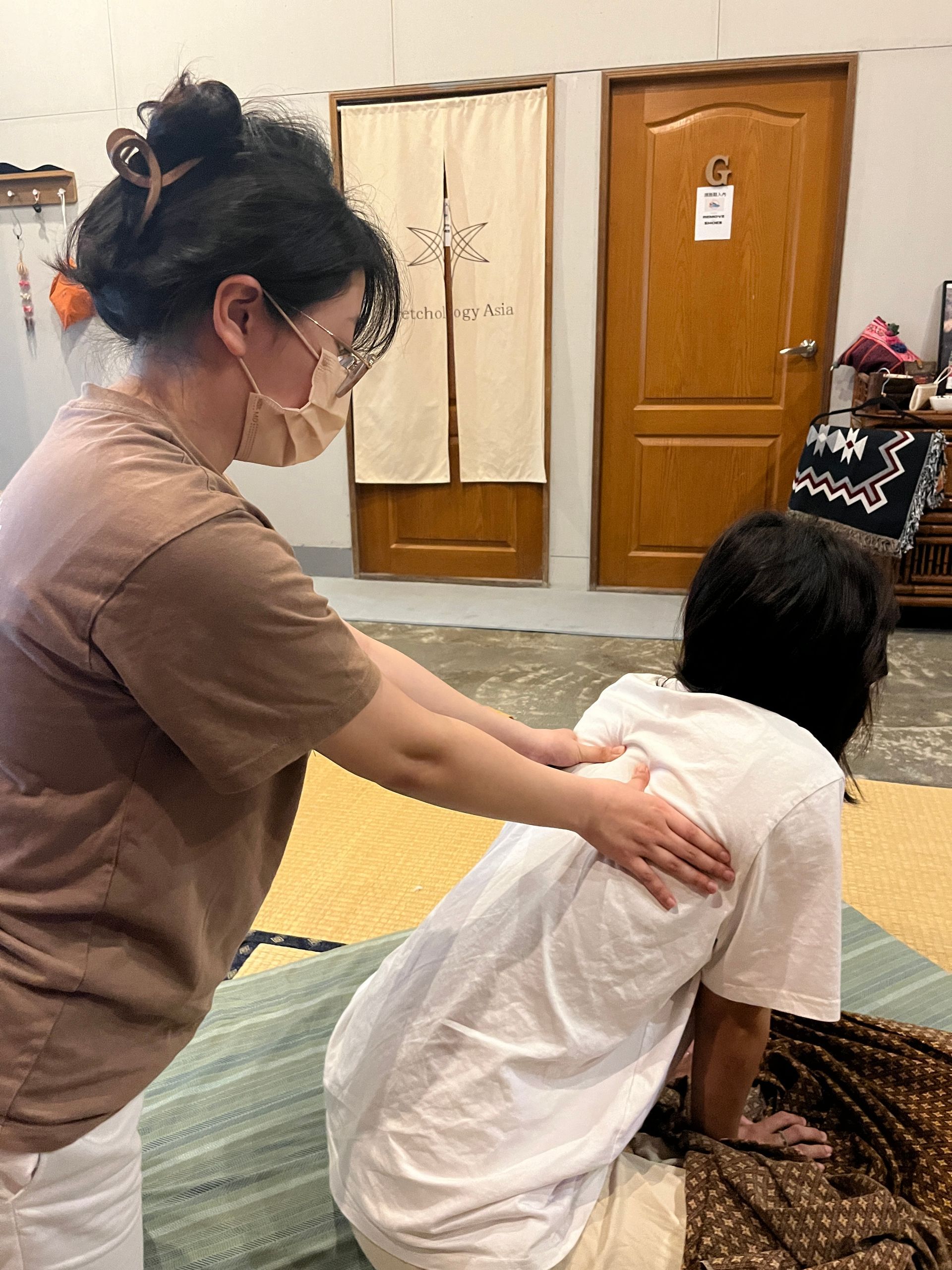
The Transition: From 9–5 to the Healing Arts
People often imagine this transition as a peaceful leap into freedom—flexible hours, meaningful work, no more desk job.
But here's what they don’t always see coming:
- The physical demand of giving sessions day after day.
- The emotional energy it takes to hold space for others.
- The hustle of building a steady client base.
- The vulnerability of riding the waves of slow seasons.
This work
is freeing, yes—but it also asks a lot of you.
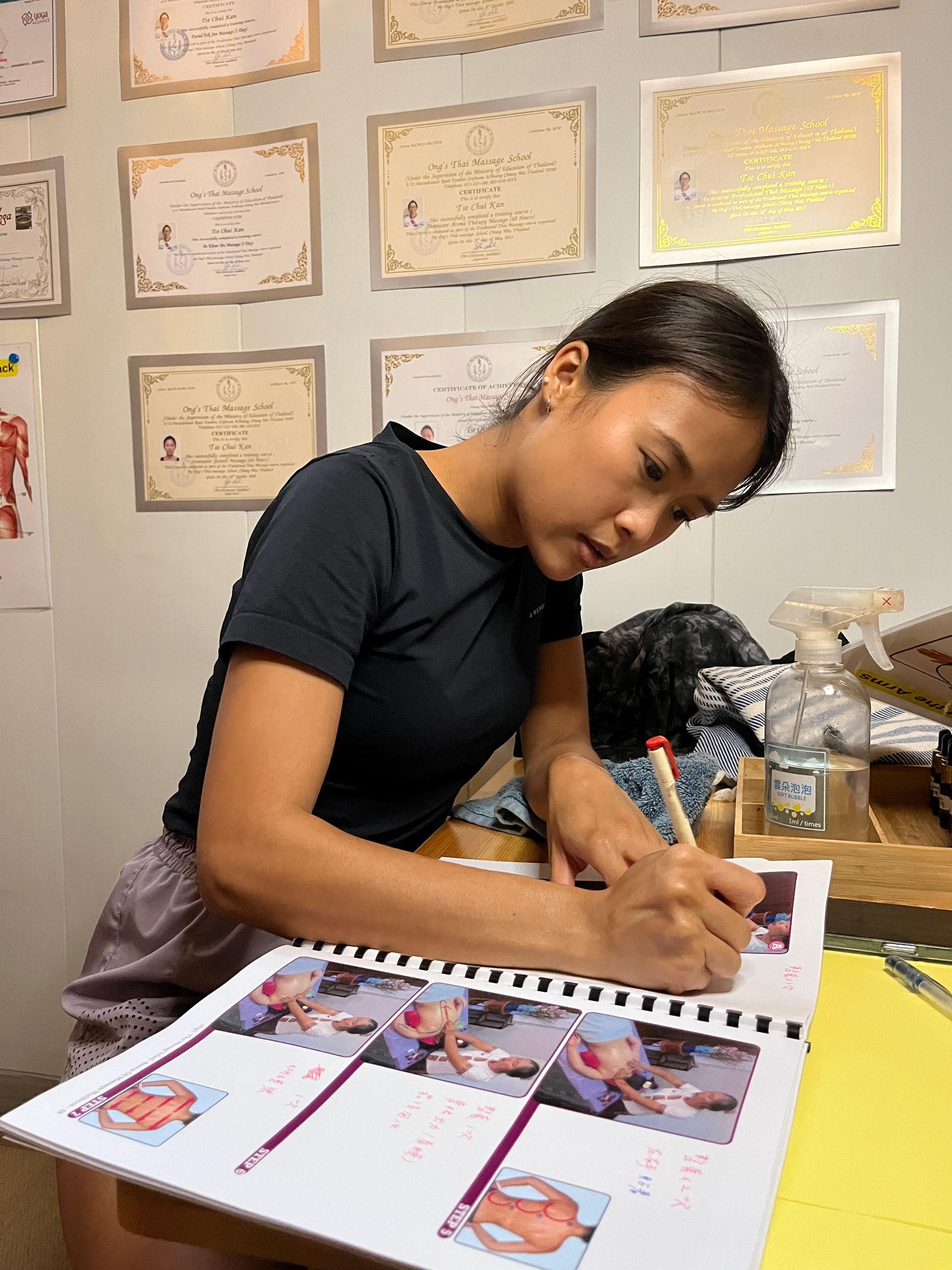
Skills Beyond the Hands: What It Really Takes
Becoming a Thai massage therapist isn’t just about stretching bodies. It’s about becoming a steady, grounded presence. Some things you’ll need to grow into:
- Deep listening, intuition, and emotional regulation
- Proper body mechanics and energy protection
- Learning anatomy and the deeper roots of the tradition
- Communication and boundaries
- Business basics: marketing, scheduling, social media, etc.
- A serious commitment to recovery practices: daily stretching, yoga, strength training, ice baths, sauna, grounding in nature, breathwork… These aren’t luxuries—they’re part of the job. If you don’t take care of your own body and nervous system, you simply can’t serve others sustainably.
It’s a
whole
practice, not just a job.
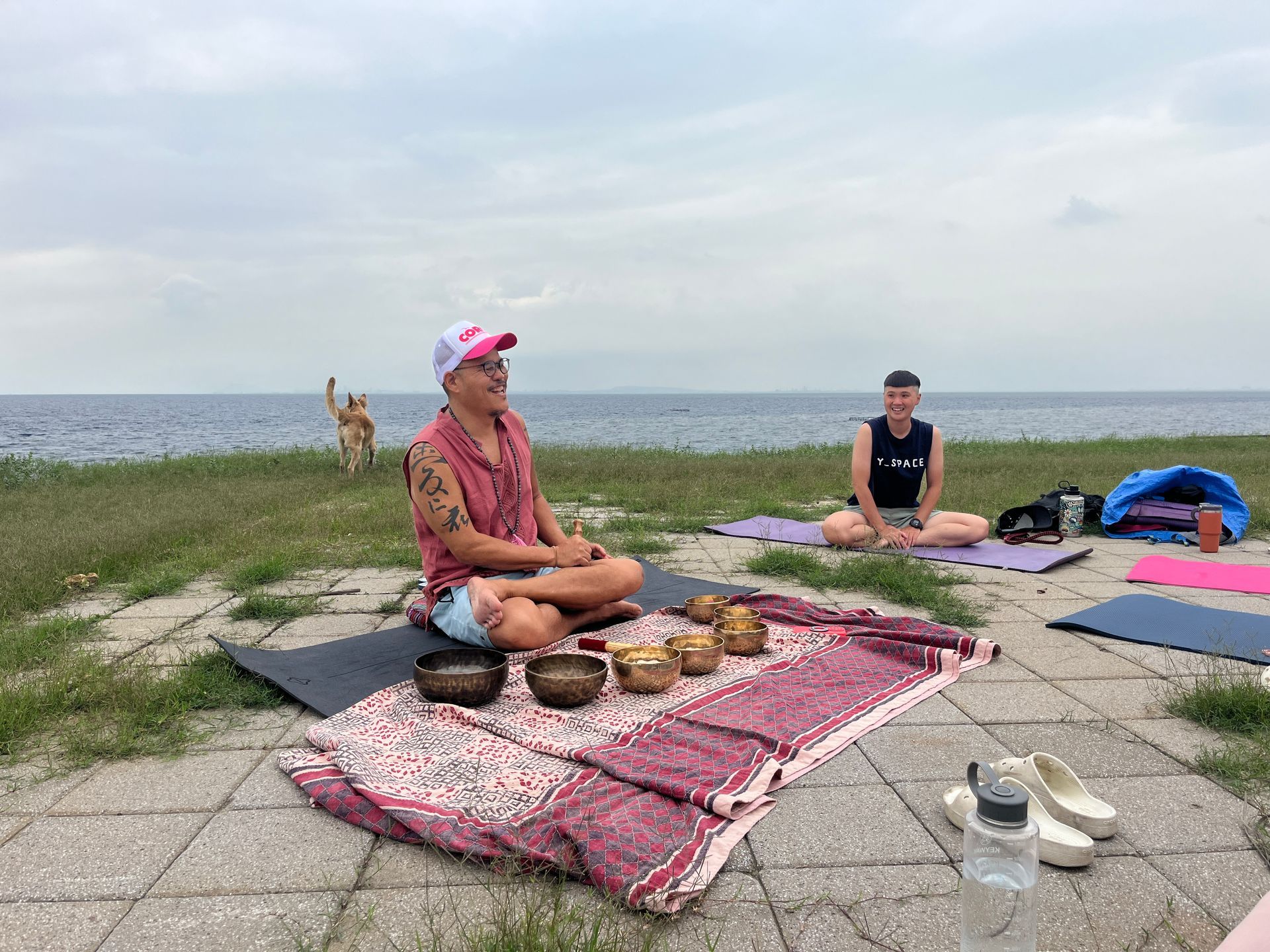
The Glamour vs. The Grit
It might look peaceful from the outside—but behind the scenes, massage therapists often deal with:
- Last-minute cancellations
- Physically exhausting days—especially if you're a female therapist, navigating your moon cycle while still needing to show up and hold space
- Emotional exhaustion from holding space
- Quiet months where you question everything
- Wearing many hats: you may be your own receptionist, laundry person, cleaner, social media manager, and accountant.
But… if you love the practice, all of this becomes worth it.
Every challenge is a teacher.
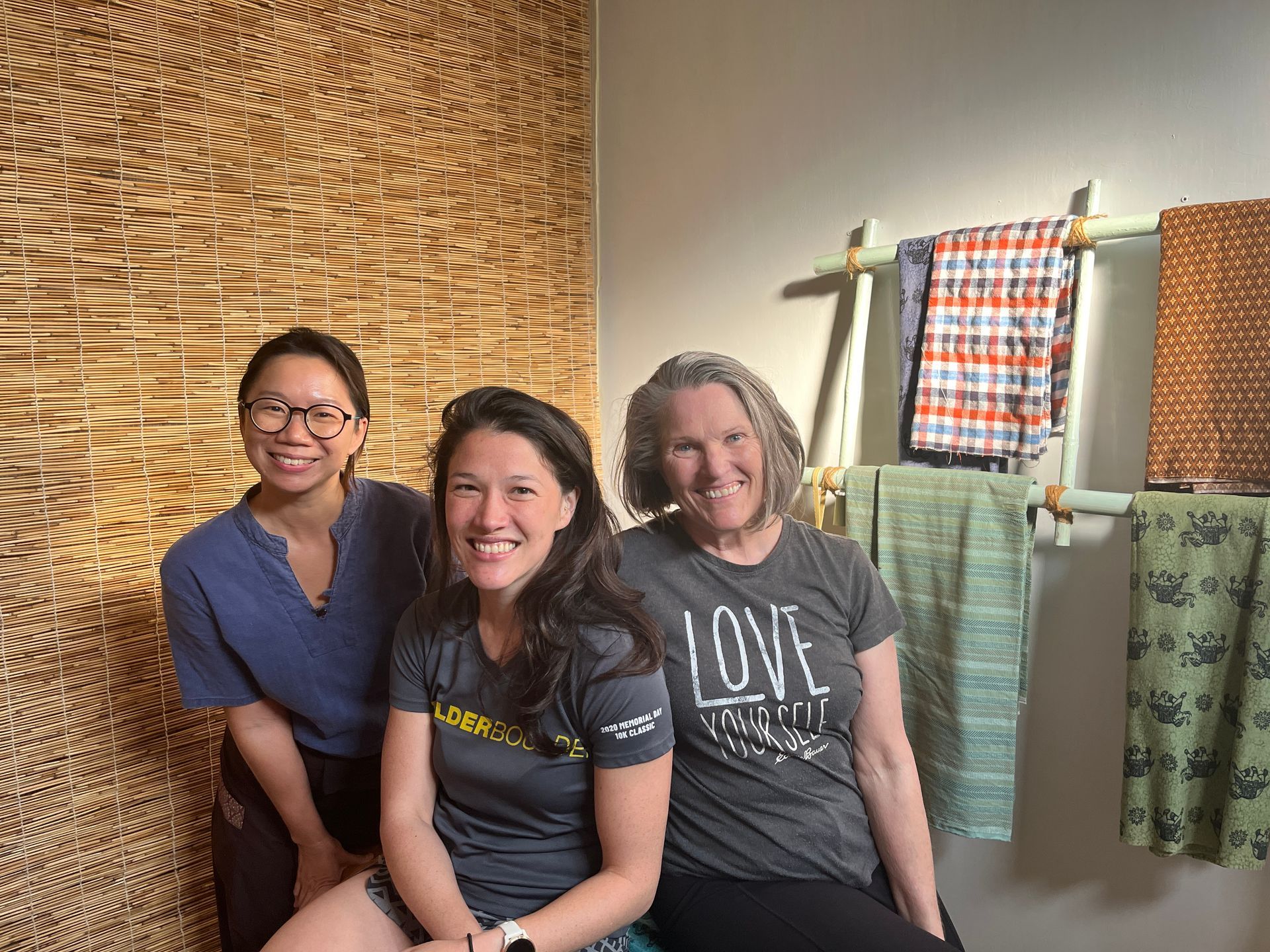
What I Wish Someone Had Told Me
Before I became a bodyworker, I was working in tourism and marketing. It was a practical career, something I was familiar with—but then Thai massage found me.
I took my first course by chance, and I loved it immediately. I kept learning, more for myself than for work. As I understood the philosophy behind the practice, my heart kept expanding. The deeper I studied, the more joy I found.
What shocked me was the joy I felt every time I finished a massage. It was incomparable. I hadn’t felt that kind of fulfillment in my previous work.
Eventually, my husband Ray and I moved to a small island in Taiwan. He was starting his freediving business, and I began offering massage more regularly—just as part of my income.
But within 3 months… it became my full-time income. That surprised me—how quickly it became real.
Then COVID hit, and everything slowed. My business dropped. I suddenly realized how vulnerable it was to rely solely on massage. I had doubts. I felt fragile.
But those seasons don’t last forever. Slowly, more people came. The work returned. My calendar filled. And one day, I heard myself say, “Sorry, we’re fully booked.”
It hit me: This is
real.
I have clients. I have a flow. I have a practice.
This work isn't always easy—but it is deeply worth it.
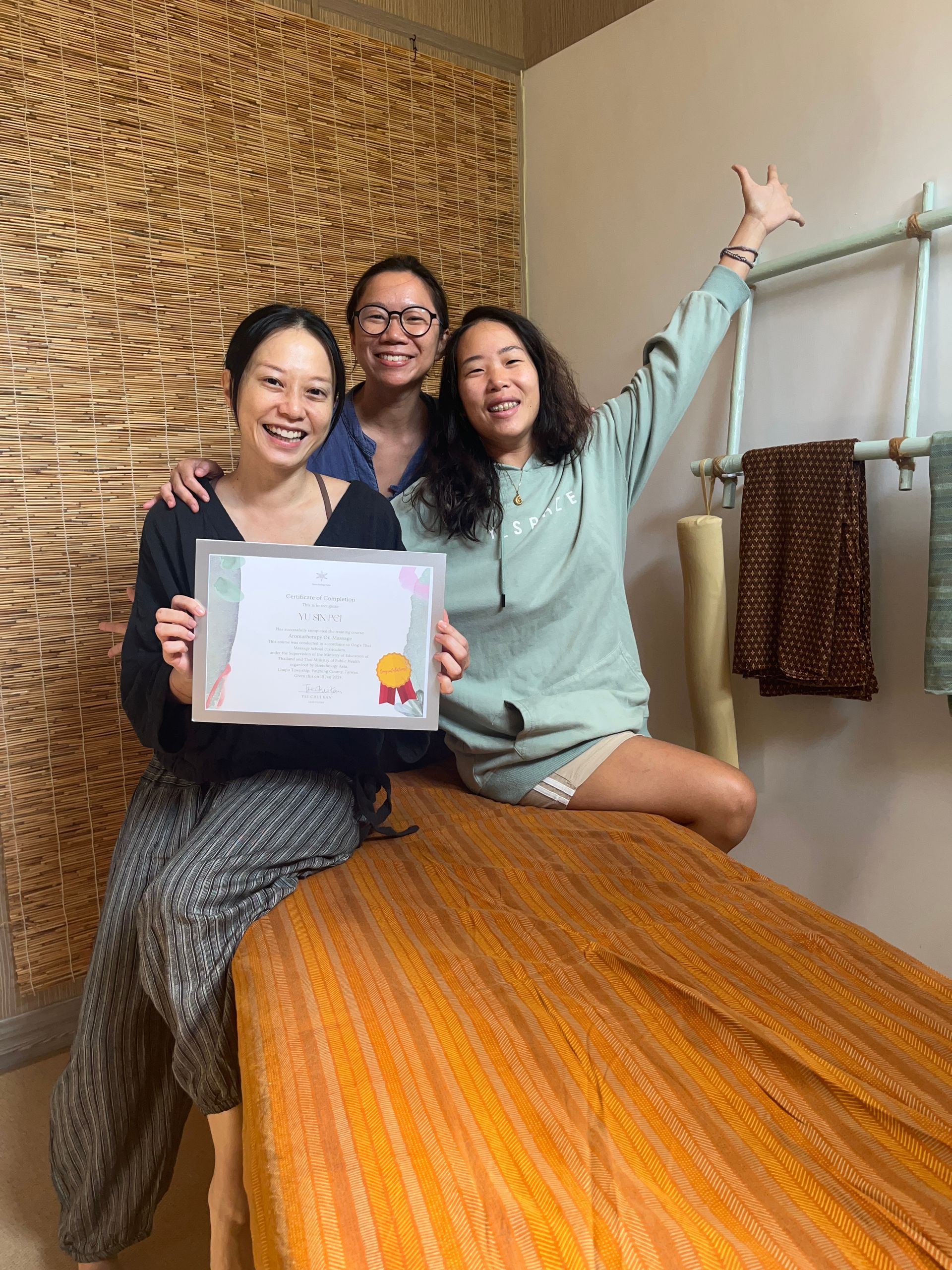
Who This Path Is For—and Who Might Struggle
This path is for people who are:
- Willing to keep growing, emotionally and spiritually
- Comfortable with less structure and more fluidity
- Open to both discipline and surrender—especially when it comes to your own diet, your physical movement, and daily meditation or spiritual practices
- Not afraid to be a little different from the mainstream
- Drawn to bodywork not just as income, but as a way of life
This path might not be for you if you crave fast results, stable paychecks, or clear-cut schedules. It requires trust, consistency, and a lot of personal care.
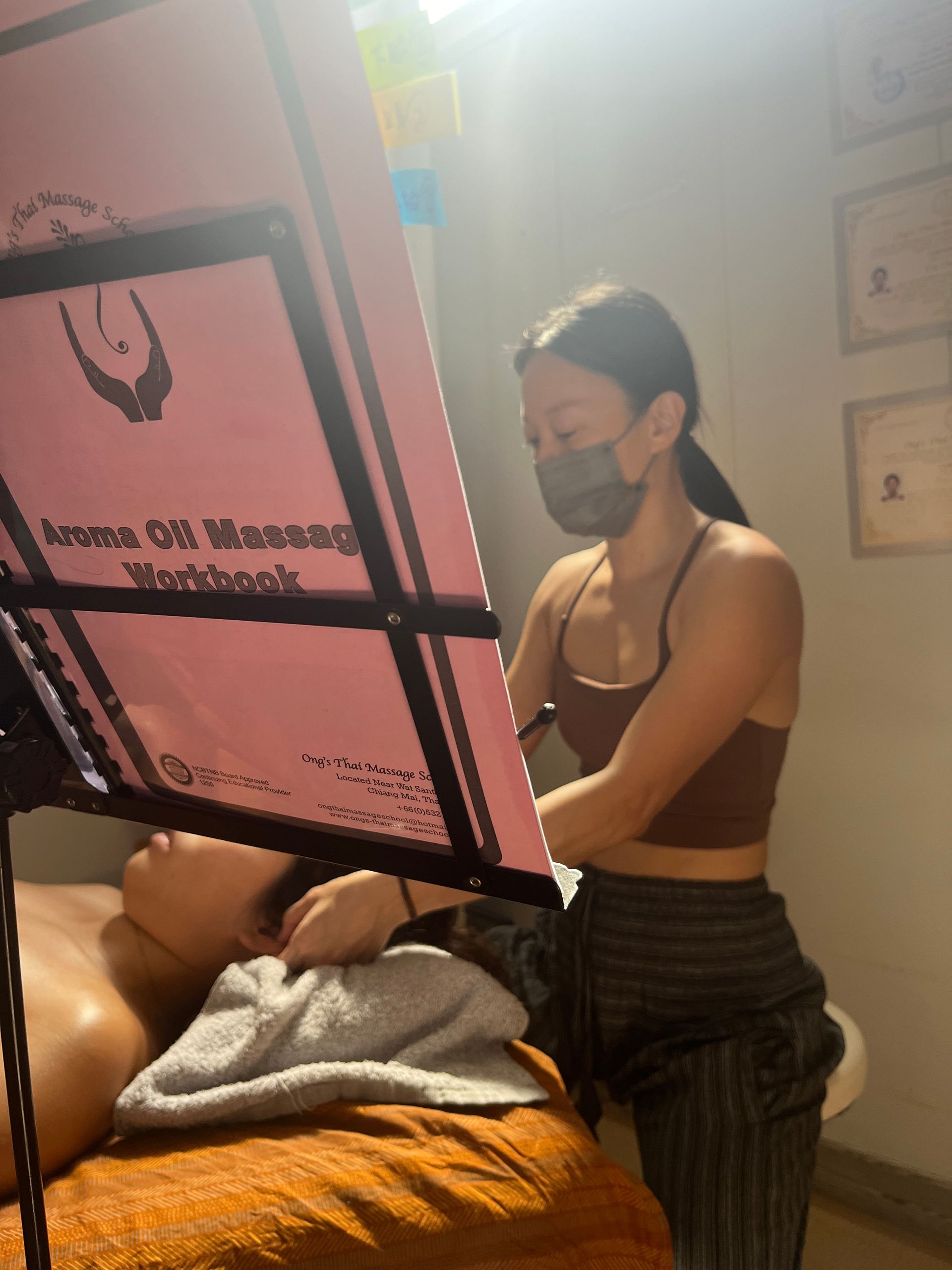
Empowering Advice for the Aspiring Therapist
- Start while you’re still in your day job—don’t rush.
- Study with teachers who embody the values you resonate with.
- Know that slow growth is sustainable growth.
- Surround yourself with people who walk this path with awareness.
- Learn to protect your energy—because your presence is your greatest gift.
- Start working out every day and take
serious care of your body and recovery!
You are your tool. Don’t burn out the instrument that makes the magic happen.
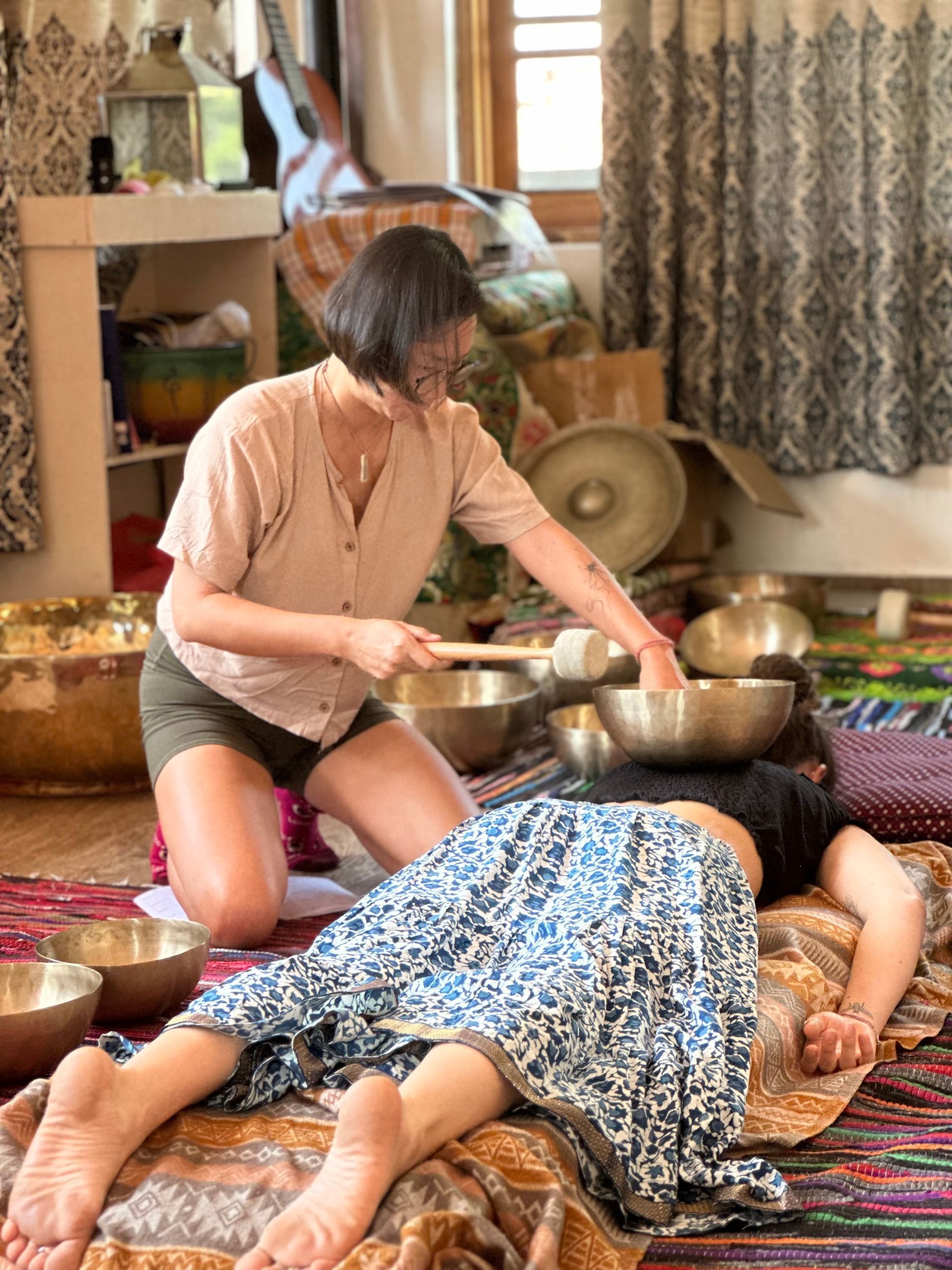
Conclusion: The Healing Path Is Not Easy—But It’s Worth It
Being a Thai massage therapist isn’t just about giving massages—it’s about becoming a healing presence in the world.
You’ll grow. You’ll get tired. You’ll feel unsure. But you’ll also light up from the inside out when a client leaves your space feeling seen, safe, and whole.
If this is your calling—trust it.
But walk into it with open eyes, a strong heart, and grounded feet.
Wanna take your very first Thai Massage Certification Course? Click
here to look into the details!
RECOMMENDED ACTIVITIES
MORE BLOGS

